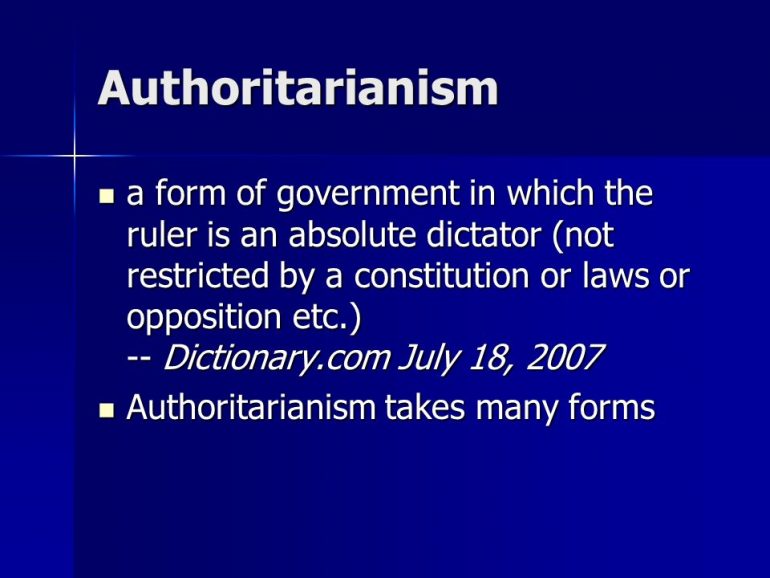An official editorial in the Observer (sister publication of the Guardian) on Brexit, “The Observer view on leaving the European Union”, Feb. 2, included the following paragraph:
In the coming months, Britain will have to pick a careful path in the shadow of an increasingly for-or-against-us president. US bullying over the Huawei “security risk” and digital taxes on the technology giants is a sure sign of things to come. The other big challenge concerns Britain’s future dealings with China and other authoritarian regimes such as Russia, Brazil, Israel, Turkey and some of the Gulf states.
First, here’s how Encyclopedia Britanica defines “authoritarianism”:
Authoritarianism, principle of blind submission to authority, as opposed to individual freedom of thought and action. In government, authoritarianism denotes any political system that concentrates power in the hands of a leader or a small elite that is not constitutionally responsible to the body of the people. Authoritarian leaders often exercise power arbitrarily and without regard to existing bodies of law, and they usually cannot be replaced by citizens choosing freely among various competitors in elections. The freedom to create opposition political parties or other alternative political groupings with which to compete for power with the ruling group is either limited or nonexistent in authoritarian regimes.
By what credible metric can Israel – which is nearing its third democratic election in less than a year – possibly be described as “authoritarian”? Whilst there is no doubt that most of the other countries mentioned (China, Russia, Turkey, etc.) would fall under this category, Israel is consistently categorized as “free” and “democratic” by the reputable international human rights organisation, Freedom House. Freedom House writes that “Israel is a multiparty democracy with strong and independent institutions that guarantee political rights and civil liberties for most of the population”.
By contrast, the other countries we mentioned are indeed listed as “not free” by Freedom House.
Additionally, the Economist’s annual democracy index rates Israel as “democratic” and in fact gives the state a democracy rating higher than even some Western European states, as we noted in this tweet from last month:
The Economist Intelligence Unit @TheEIU 2018 Democracy Index again ranks #Israel 30th out of 170 countries surveyed.
Israel is only five places behind the United States, and ahead of several EU countries – like Belgium, Italy, Czech Republic and Greece https://t.co/f8qIee13yz pic.twitter.com/PI02CuGFol
— CAMERA UK (formerly UK Media Watch and BBC Watch) (@CAMERAorgUK) January 9, 2019
The Economist Democracy Index reports also show that, from 2006 to 2019, Israel’s democracy score actually increased, and is now at it’s highest level ever – undermining the narrative of ‘Israel’s eroding democracy’.
It’s one thing for the Guardian to level measured criticism of Israel: such as it’s moving right-ward, becoming less liberal, even eroding selective rights, etc.). However, the term “authoritarianism” (in both it’s dictionary definition and our common understanding of it) goes way beyond such critiques, conveying to readers a completely counter-factual characterisation of Israel as a despotic, non-democratic regime.
We’ve complained to the Guardian Readers’ Editor about this claim.
Related Posts:
- AFP lends hand to Palestinian propaganda (CAMERA)
- Former BBC Persian journalists mourns Qasem Soleimani (BBC Watch)
- Daily Mail legitimises four Palestinian maps that lie (UK Media Watch)





